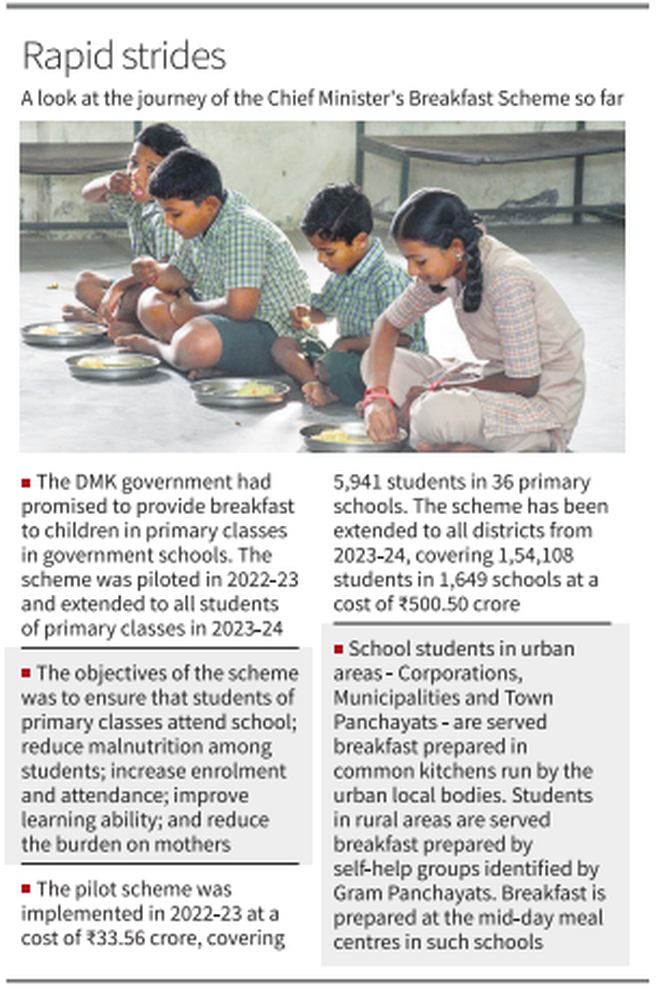A comprehensive study, ‘Chief Minister’s Breakfast Scheme: Impact on Children in Primary Classes in Government Schools’, undertaken by the State Planning Commission (SPC), has revealed that not only has classroom attendance gone up, but also the students have shown an improvement in aptitude following the implementation of the scheme.
The study looked into aspects such as the effect of the breakfast scheme on attendance among primary school students; engagement in class; and the academic performance of the students; and sought to understand how the scheme was perceived by their teachers and parents. The survey was carried out by the Community Medicine Department of all government medical colleges, and led by the Community Medicine Department of the Madras Medical College.

The SPC shortlisted 100 out of 1,649 schools, covering 5,449 students. These schools were selected from across 38 districts; 18 of them are urban schools and 82 are rural schools, covering 1,297 and 4,152 students, respectively.
This baseline survey was done in December 2023, and there will be multiple rounds of follow-up to see how the patterns evolve. The first follow-up will happen this month; the second in June; the third in September; and the final one in December. There will be constant monitoring, as part of which discussions will be held with heads of schools, teachers, parents and other stakeholders.
The results of the baseline survey highlight the perception of primary caregivers about the breakfast scheme. Primary caregivers are classified into categories based on their source of income, such as casual labour in agricultural or non-agricultural work, salaried employment, self-employment in agricultural or non-agricultural work, and unemployed. They pointed out that breakfast was not cooked at home regularly, and hence, a majority of the children preferred having food in school.
According to them, 60.3% of the students in rural areas were reaching school half an hour before the classes started, and found time to play and interact with each other. Also, there had been an improvement in their aptitude. For instance, in rural areas, the aptitude levels increased by 88.4% (3,382), and in urban pockets, it was up by 88.3% (760). Likewise, there had been an improvement in learning and participation in sports. There has been an 88.7% (3,395) improvement in learning in rural areas and 88.4% (728) in urban areas. In terms of sports, the rural score stood at 88.8% (3,398), while in urban areas, it was 85.5% (737). Caregivers also indicated that the breakfast scheme helped them save both time and money.
Teachers reported that 97.2% (4,561) of the students were utilising the breakfast scheme regularly, while 95.6% (4,502) were using the noon meal scheme regularly. They said that 45.4% of the students in rural areas were reaching school half an hour before the classes started, and found time to play and interact with each other. The number of students with a history of hospitalisation and acute ailments was low. The morning food intake was helping them enhance their attention, complete written work and recall the previous day’s lessons.







